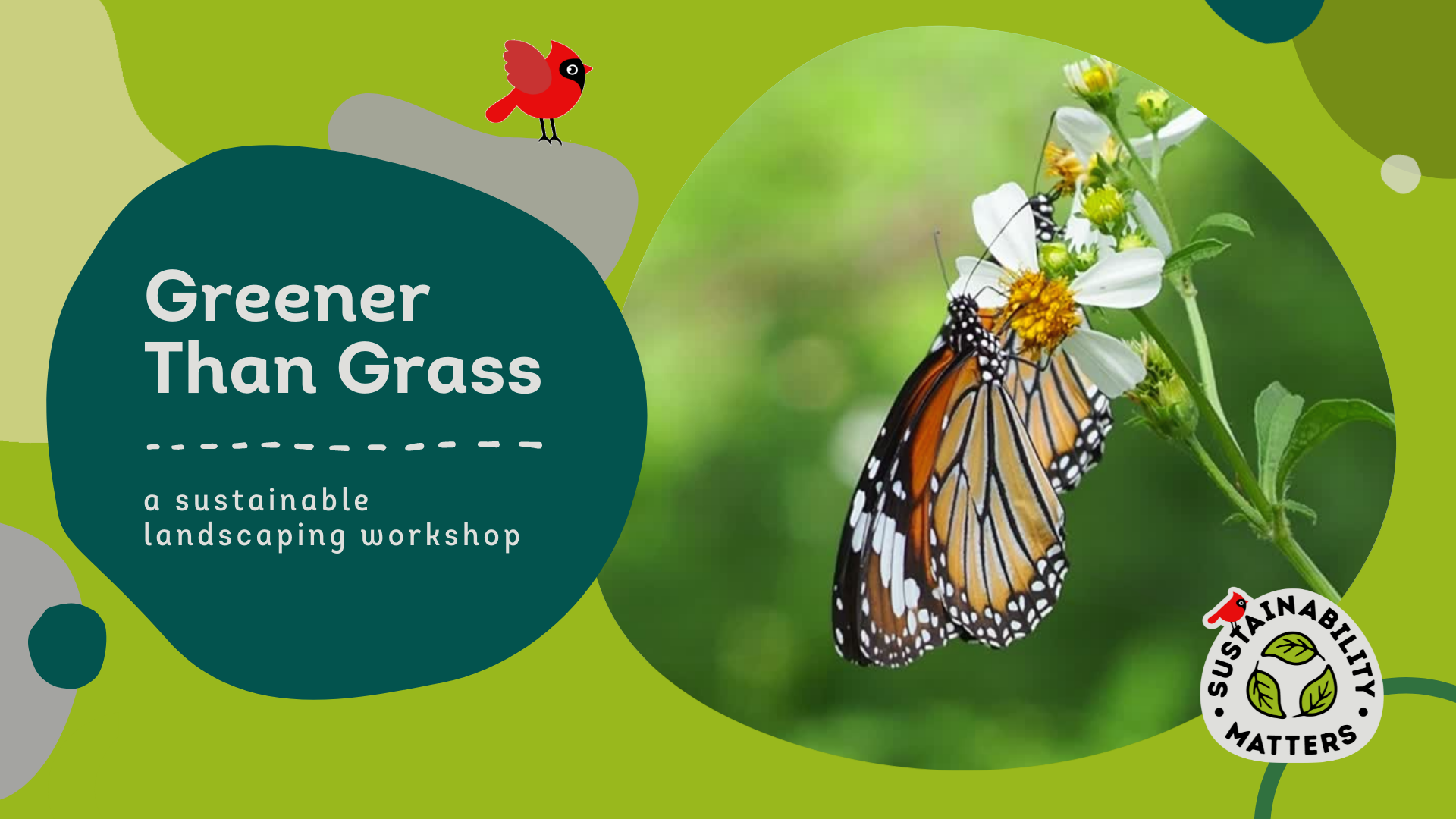
Educating everyone
We offer a diverse collection of workshops and other programs that empower all individuals to help the environment while also helping their families and themselves. Through webinars and in-person events, we provide tools and resources that allow people to make concrete changes no matter where they are in the world. And we help bring together people with common environmental goals because being in community is key to making change that lasts.
Our programs in this area fall loosely into three categories: Home-Grown Conservation, Sustainable Sustenance, and
Zero Waste & Recycling Outreach.
Home-Grown Conservation
For us, conservation begins at home. It means making your environment more livable for everyone: you, your family, and the plants, wildlife, and insects with whom you share your space. An ecologically friendly landscape doesn’t have to be expensive or high-maintenance. In fact, it’s often easier to maintain than the traditional manicured lawn, which guzzles chemicals, nutrients, water, and family time. In workshops like Greener than Grass, we teach participants how to landscape more sustainably, replacing their lawns with no-mow alternatives like native meadows, that offer food and beauty to pollinators, wildlife, and human residents.
Our conservation education emphasizes realistic, practical techniques, like those covered in Living With Spotted Lanternfly and In the Weeds: Realistic Weed Management. We’re honest about the time and resources needed to carry out conservation practices, helping our audiences achieve maximum results for the inputs they’re capable of.
Sustainability Matters’ conservation and nature appreciation education is for all ages, not just the adults who’ll be doing the heavy lifting (or landscaping). In our Toadally Toady workshop, parents and children learned about amphibians’ vital role as environmental barometers (and how to make toad houses!). Wormy Workshops introduced elementary schoolers to soil structure and composting, with bonus interaction with wiggly friends. And our new Monarch Migration Game focuses on pollinators for the pre-teen set.
Sustainable Sustenance
Nothing’s more fundamental than food. For many, learning to grow and preserve their own food is the gateway to a sustainable lifestyle, both environmentally and economically. Through programs like Edible Landscaping in Small Spaces and Preserving for the Perplexed, we guide individuals of all resource and aspiration levels – from container gardeners and pandemic hobbyists to incipient homesteaders – through basic self-sufficiency. Participants learn
to save money while achieving control over their own menus and ingredients, and gaining access to chemical-free produce rich in the nutrients normally lost during transport from farm to point of sale. And by focusing on food, we are able to create relatable content for people all across the globe!
As a community environmental organization, Sustainability Matters is often the front line for public questions about waste and recycling programs: “Why won’t the city/county take glass or certain types of plastic anymore? Isn’t there anything that can be done about this?’’ We use our reach to help recycling departments educate their communities. We’ve organized public tours of recycling centers, wastewater treatment plants, and landfills and run social media series on topics like what’s recyclable (and what’s not) and how to repurpose items that would otherwise end up in the trash. In fact, one of our videos encouraging viewers to clean out their plastic bottles before recycling reached more than 1.5 million viewers! Our annual What’s Up With Recycling? online forum brings in expert panelists to answer the public’s burning questions.
Zero Waste and Recycling Outreach
We also partner with the City of Winchester on educational programming - supported by Virginia’s Department
of Environmental Quality - aimed at zero waste. Our Composting for the Clueless webinars, workshops, and associated Facebook community have taught over 1,000 participants to keep food and yard waste out of landfills and use it to feed their gardens instead. Be on the lookout for our 2024 partnership, where we’ll be focusing our Sustainable Socials on educating the public about realistic ways to reduce their use of single-use plastics – from making their own DIY cleaning and bathing supplies to converting fruit containers into “mini greenhouses.”
Everyone educating
Participants in our programs support and learn from each other as much as they do from us. The peer network and interaction keeps “repeat customers” engaged with Sustainability Matters’ programming as much as the program quality itself does. Many of our in-person programs include a social component, such as our annual Winter Tree ID Walk and Holiday Potluck and the landfill brunches where we provide updates on Making Trash Bloom. Our community is online too, with content ranging from Singaporeans introducing Americans to the phenomenon of countertop composters to Virginia neighbors exchanging plants and manure for compost.






